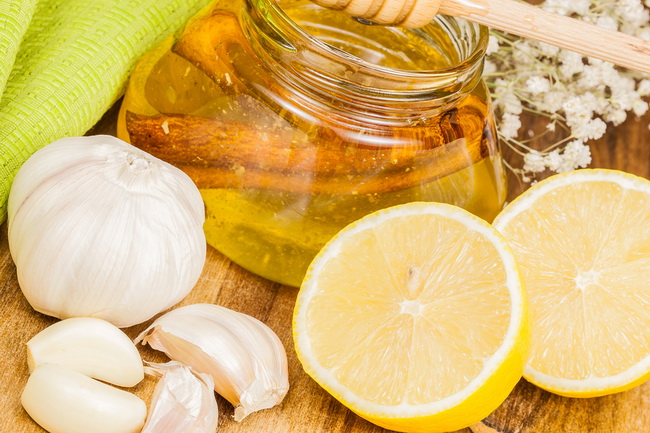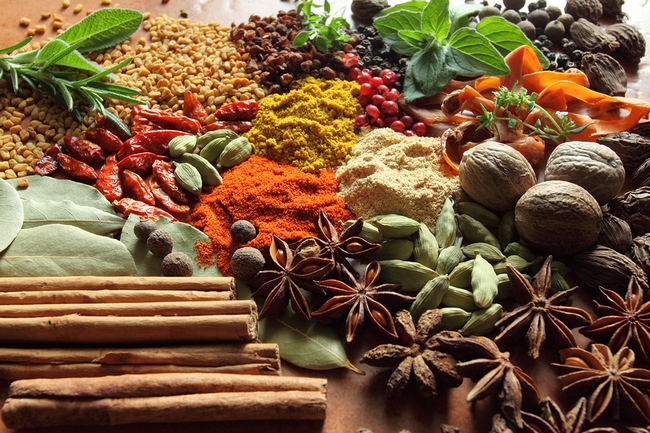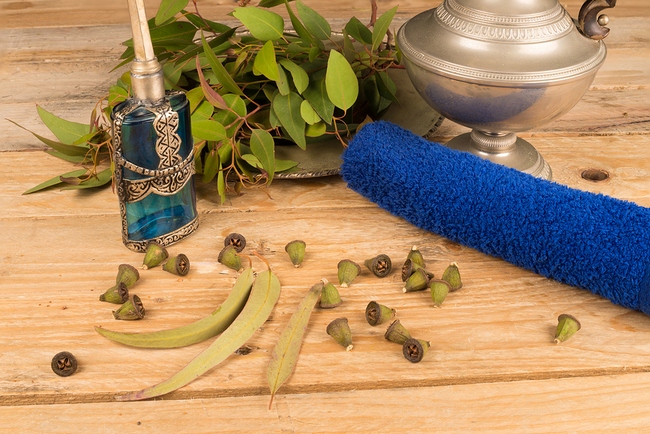- Make It Yourself Lavender Heart-Shaped Bath Bombs!
- 20 Things You Never Knew About “Down There”
- 12 Best Foods For Those Suffering From Arthritis Pain
- 12 Personal Hygiene Mistakes Almost Everyone Makes (Mom Never Told You About #4!)
- 15 Medicinal Plants And Herbs From The Cherokee People
- 12 Mind-Blowing Benefits Of Drinking Coconut Water During Pregnancy
- 12 Outstanding Winter Foods That Won’t Fatten You Up Like A Christmas Turkey
Exciting Natural Treatments For Asthma That Really Work!

Photo credit: bigstock.com
With more than 235 million people in the world currently suffering from asthma, you would think that science would have found a better treatment by now. Asthma is a chronic or acute inflammation of tissues that cause airways to swell, making breathing next to impossible. Common symptoms are wheezing, difficulty with breathing, shortness of breath, and coughing.
Although the exact workings behind asthma are not known, what is known is that certain factors trigger attacks. Things such as allergies, infections, medications, chemicals in food, emotional upset, and air pollution.
Before you try those pharmaceutical solutions, with chemicals that will clear your airways but fill your lungs with even more toxins, try some of the natural remedies that are available. Of course, you should always consult with your physician before stopping any medication or trying any herbal remedies.
1. Supplements
Sometimes a simple supplement to your diet is what is needed to help prevent an attack. The top supplements to improve lung health are:
- Omega – 3 Fatty Acids – Fish oil or krill oil supplements can go a long way towards helping your lungs react better when they come into contact with an irritant. Omega-3 will also reduce inflammation in the body that causes the narrowing of air passages.
- Vitamin D – There has been a great deal of research done lately with vitamin D and the important impact is has on our overall health. Many studies link a lack of vitamin D to numerous health problems including the development of cancer. Be sure you get plenty of vitamin D either through healthy sun exposure, supplements, or a UV light.
- Ginkgo Biloba – This popular herbal supplement works well to improve breathing and reduce or eliminate wheezing.
- Butterbur – This herb is a natural anti-inflammatory and it reduces muscle spasms. This supplement is especially effective for those with allergy induced asthma.

Photo credit: bigstock.com
2. Foods
- Onions – Loaded with sulphur, onions will decrease inflammation of the lungs, clear congested airways, and improve breathing in a matter of minutes. Unfortunately, you need to take a big bite or two out of a raw onion for this to work. If you can deal with the strong taste, this will work wonders for you.
- Figs – This simple fruit encourages respiratory health and drains mucus from the respiratory system, which will ease breathing difficulties. Wash 3 dried figs and soak them overnight in a cup of water. In the morning, eat the figs and drink the water on an empty stomach for easier breathing all day long.
- Raw Organic Honey – This is one of the oldest treatments for asthma. Raw organic honey contains ethereal oil and alcohol that helps to reduce the symptoms of asthma. Mix one teaspoon of hone into a glass of hot water and drink slowly 2 or three times per day. You might also try mixing half a teaspoon of cinnamon in one teaspoon of honey and swallowing this just before bed. This will remove phlegm from the throat, which makes breathing easier, eliminates coughing, which will help you to sleep better.
- Lemons – Many people who suffer from asthma have low levels of vitamin C in their bodies. Lemons are super healthy for the body; they are rich in antioxidants and vitamin C, which can help to reduce asthma symptoms. You can add the juice of half a lemon to a glass of water and drink two or three times per day. You can add lemon juice to the honey mixture above for a double whammy of asthma fighting power.
- Coffee – The caffeine found in coffee can help to control attacks because it works as a natural bronchodilator. The stronger the coffee, the better the results. Drinking a cup of hot coffee will help clear the airways and help you breathe easier, but this, of course, is not a good solution close to bedtime as the caffeine might keep you awake. Don’t drink more than three cups of coffee a day. If coffee isn’t your thing, you can also try hot black tea.
- Apple Cider Vinegar – This is another old home remedy that, when consumed on a daily basis, can reduce the frequency as well as the severity of attacks. Apple cider vinegar will help to strengthen the lungs, as well as the immune system. Try to drink 2 tablespoons of apple cider vinegar in 8 ounces of water. You can always add honey to improve the taste.

Photo credit: bigstock.com
3. Herbs and Spices
- Ginger – Well-known for reducing inflammation in the body, it also relaxes the muscles. You may add fresh ginger to just about anything, from smoothies to vegetable dishes, or simply make a tea adding some honey for taste.
- Garlic – If you can stand the taste, the best way to consume this natural decongestant is to consume it raw. Slightly crush a clove of organic garlic, allow it to sit for about 10 minutes, then swallow it whole. If that is too strong for you, you can add it to your foods or make a strong garlic soup. Another remedy is to boil 2 slightly crushed cloves in a cup of milk. Once the milk has cooled to where it warm, but not hot, drink the milk, discarding the garlic cloves.
- Turmeric – This spice has been used in Ayurvedic medicine to treat asthma symptoms for hundreds of years. Turmeric is a powerful anti-inflammatory that relaxes muscle spasms and improves airflow. You can use it in cooking or take it as a supplement.
- Mullein – This herb is commonly sold as a tea, and it work well at reducing coughing, wheezing, and reliving asthmatic spasms.
- Parsley Leaf – Drinking a tea made from parsley leaf works great, as parsley is a natural expectorant and it helps to reduce coughing. Parsley is also a diuretic, so keep that in mind if you are taking prescription drugs.

Photo credit: bigstock.com
4. Other Natural Remedies
- Carom Seeds – Sometimes referred to as Bishop’s Weed, or Aiwain, these seeds are good for those with mild asthma. Carom seeds are mild bronchodilators. You can boil one teaspoon of these seeds in water and inhale the steam, or drink it as a tea, or both. You can alternatively heat a handful of seeds wrapped in a cotton cloth and heat them in the oven or microwave, then place the cloth on your chest and next until it has cooled. Repeat several times a day, if need be, or until you are satisfied with the results.
- Eucalyptus Oil – This is a terrific method of clearing congestion and breaking up mucus in the lungs or bronchial tubes. You can try putting two or three drops on a cotton ball or even a cotton cloth and breathe deeply. You could also put some in a steam vaporizer. One more method is to put three or four drops in a cup or so of water in a saucepan. Allow the water to boil, then turn off the water and breathe in the steam, being careful not to burn your face.
- Mustard Oil – This is an old home remedy that works remarkably well. Mustard oil will really help to open up respiratory passages. When you feel an asthma attack coming on, massage a bit of mustard oil into your upper back and chest. You can even mix a bit of camphor oil to your mustard oil for a powerful airway opening duo.

Photo credit: bigstock.com
5. Dietary Changes
- Eliminate sugar, gluten, and soy from your diet for a period of 6 to 8 weeks and see if you notice improvements in your breathing. Many people are allergic to these items and consuming them causes inflammation in the lungs.
- Add more garlic, ginger, onion, and turmeric to your diet every day to get the most of their anti-inflammatory effect.
- Stay hydrated with plenty of water and herbal teas.
- Eat more plants and plant protein powders and less meat.
- Always choose organic, whether it’s plants or animals, to avoid putting more toxins in your body.
- Avoid GMOs
- Eliminate all fried foods, margarine, and polyunsaturated oils, as these all cause inflammation.
More than likely you already take steps to avoid respiratory irritants, but be extra vigilant. Some irritants that you might not have considered are dust, mold, chemically laden household cleaners, and cosmetics.
Also, even though you might have heard differently from the mainstream media, don’t go OCD with cleanliness. Being exposed to some of the everyday viral and bacterial contaminants that occur in life can actually be beneficial, proving the stimulus to the immune system, which can prevent asthma naturally. This is especially important for children.
SEE ALSO: Surprising Asthma Statistics Infographic
Remember to check with your doctor before stopping your medication and talk about using alternative methods, such as those listed above, for controlling your asthma.
References:
































